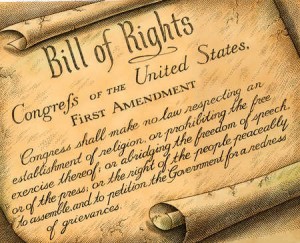The American antiwar movement has an illustrious history of peacefully highlighting and denouncing the criminality of our country’s military apparatus. From Henry David Thoreau’s tax resistance to the Mexican-American War, to SDS’s protests against the Vietnam War, to the progressive-libertarian marches against the Iraq War, the antiwar movement has long been on the frontlines of efforts to restore (or bring) rectitude to our republic by ending the state-sanctioned practice of mass murder. However, through its First Amendment jurisprudence, the Supreme Court has habitually stymied our...













